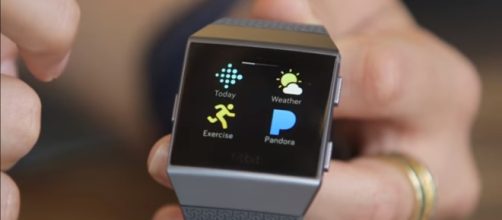Smartwatch brand Fitbit sealed a partnership deal with Dexcom, a company known for its continuous glucose monitoring (CGM) devices for diabetics. The official announcement came today and both companies are looking to bring Dexcom's monitoring device data to Fitbit's latest smartwatch, the Ionic. This initiative will push for the accessibility of glucose levels right alongside heart rate, steps, and other statistics tracked by the device.
What is a CGM device?
A CGM device contains a mechanism that allows the wearer/user to track his/her glucose continuously throughout the day and night.
It also provides notifications with regard to high and low levels, which can prompt the user to take action. It works with a sensor that is placed just under the skin and it measures the glucose levels every few minutes. In this way, a significant amount of data is gathered to supplement monitoring. The way it works with a smartphone or even the Apple Watch is through a transmitter that is attached to the sensor, which flashes the results on the gadget.
Fitbit's fitness focus
Fitbit is known for its fitness trackers, which has become its flagship product. The company's effort to make fitness bands is reflective of its desire to address users' health and wellness needs. Apart from helping users keep track of their vitals, Fitbit is taking it up a notch in its health approach.
In this case, the primary beneficiary would have to be diabetics. According to the World Health Organization, more than 400 million people around the world live with diabetes. This new technology integration holds promise by providing an alternative glucose-tracking method. Bringing Dexcom's monitoring device data to the Ionic smartwatch is a not only a smart move for customer satisfaction but also a wise strategy for the business as a whole.
Shares increase
According to CNBC, the announcement on the collaboration had a positive impact on Fitbit's market shares. On mid-day Thursday, the shares went up by 10% after the smartwatch brand revealed the upcoming compatibility of the Ionic with Dexcom's glucose-monitoring sensors.
The surge is actually more than double the company's 52-week average daily volume. In fact, it is the stock's highest close since January 27 when the brand failed to deliver on sales and outlook. With this collaboration, both companies are determined to develop and market products that will help diabetics manage their health better. The target availability of the feature is in 2018.


